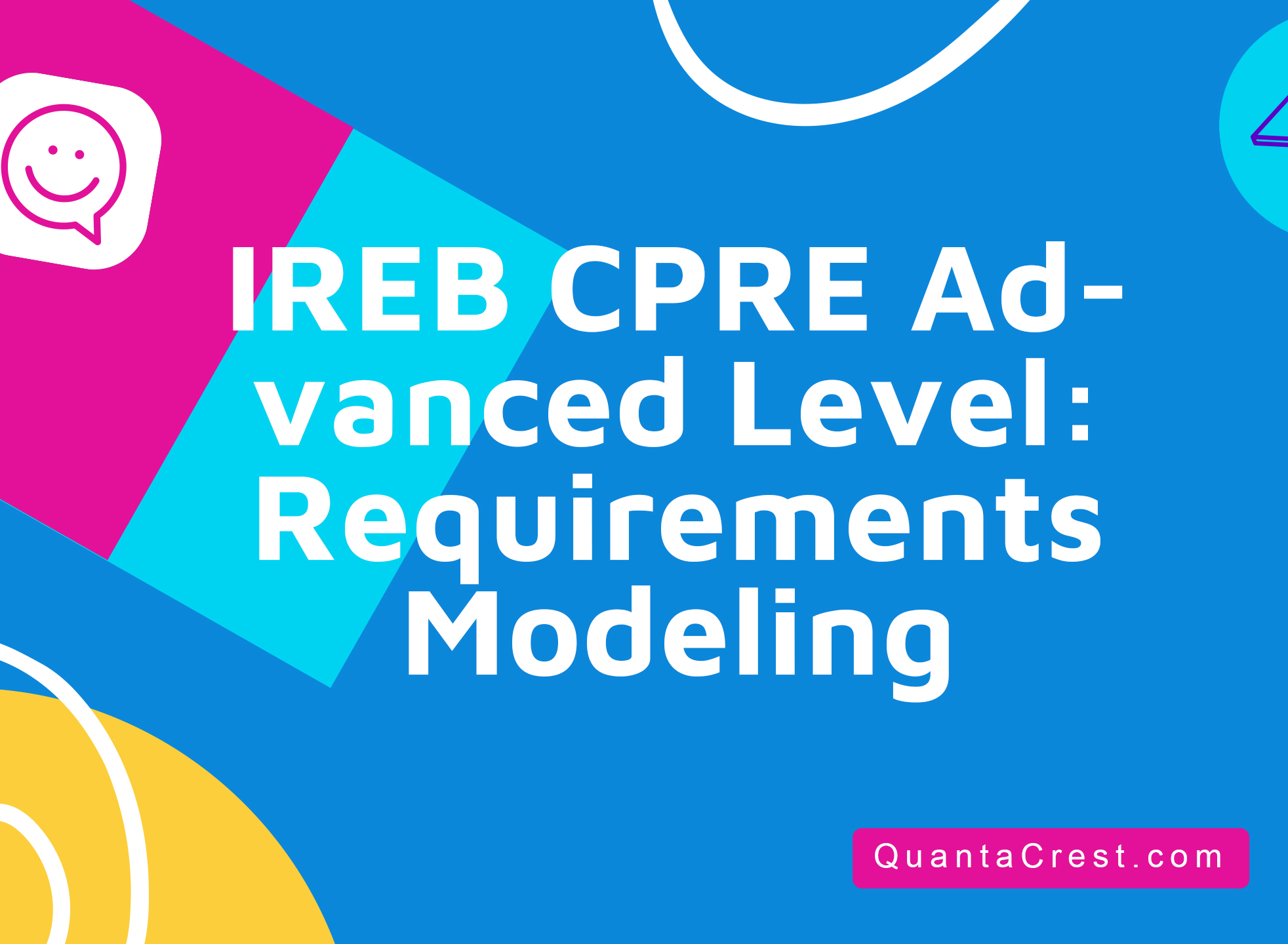IREB CPRE Advanced Level: Requirements Modeling
in Business AnalysisAbout this course
Course Overview
In this three-day IREB CPRE Advanced Level: Requirements Modeling training you will learn about Requirements Engineering from both theoretical and practical perspective. Exercises and forming opinion are an important part in this course. During the course you will practice test exams. It is recommended to prepare for the exam by studying the curriculum in the evenings.
The certification is made up of two parts and is optional and is not included in the courseprice. The written exam, which forms the first part takes place at a separate day after the training. The second part of the certification relates to the application of the learned material by means of a practical assignment. This is not part of the course and is conducted by an independent examiner.
Target Audience
- Requirements Engineers
- Requirements Managers,
- Informatie/Business analisten
- functioneel ontwerpers
- en iedereen die een belang heeft bij requirements zoals Testers, Functioneel Beheerders, Architecten.
Course Objectives
After completing this course, students will be able to:
- describe user functions and the corresponding system behavior, to detail requirements in an unambiguous and well-readable manner,
- specify information structures and concepts simply, understandably and unambiguously,
- apply modeling views for software-based systems to master the requirements,
- supplement textual requirements with graphical models in a practical way.
Course Content
The content corresponds to the curriculum published by the International Requirements Engineering Board (IREB®):
- Basic principles of Requirements Modeling
- Motivation for Requirements Modeling an Fundamentals
- Characteristic of Requirements Modeling
- Adaptation of Modeling Languages and Integrated Textual Languages
- Quality of Requirements Models
- Context Modeling in Requirements Engineering
- Purpose of Context Modeling
- Basic Elements of Context Modeling
- Notation and Rules for Context Modeling with Data Flow Diagrams
- The Information Structure View in Requirements Modeling
- The Purpose of Information Structure Modeling
- Modeling Classes, Attributes, and Data Types
- Modeling Simple Relationships, Aggregations, and Compositions
- Modeling Generalization and Specialization
- Use-Case-Modeling
- Data Flow Modeling, Control Flow Modeling, and Diagram Types
- Requirements Modeling with Data Flow and Activity Diagrams
- Requirements Modeling with State Machines
- Scenario Modeling in Requirements Engineering
- Function modeling using activity diagrams and data flow diagrams
- Behavior modeling using state charts
- Combination of function models and behavior models
- Scenario Modeling with Sequence Diagrams and Communication Diagrams
Course Prerequisites
The participant must hold IREB CPRE Foundation certificate or the BCS Foundation Certificate in Business Analysis from British Computer Society.Test Certification
The exam is optional. The price of the exam is not included in the price of the course. If you would like to take the exam, you can specify this at the time of course booking. The exam can then be taken at a later date.
Two exams are associated with this training;
- Part 1: A written examination which consists of multiple choice questions
- Part 2: A written assignment in which the candidate must create a written study on predefined groups of topics. The written study must be original work performed by the examination candidate using only literature and tools stated by the examination candidate according to generally accepted scientific criteria. For the completion of the written study, the examination candidate should invest the equivalent of two working days (i.e. approximately 16 hours of work).
Follow on Courses
Comments (0)






